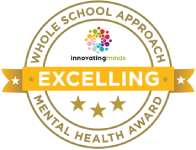Prospectus
Hale Preparatory School, established in September 1980, is an independent, co-educational school for children aged 4 to 11. The school has five broad aims.
- To provide a relaxed and secure environment for its pupils, one in which pupils are happy coming to school.
- To ensure that each child achieves full academic potential.
- To provide a well-rounded education, ensuring that the broader academic curriculum and extra-curricular activities are regarded as crucial in a child's education.
- To achieve a harmonious and positive working relationship with its parents based on confidence and trust.
- To create a school where the pupils are aware of and respect the beliefs and values of others.
In recent years, the school was considered the 'Prep School of the Year' by the Sunday Times and was referred to in two studies presented to the Department of Education. First, on "Best Practice in the Independent Sector" and secondly, as one of five examples of successful private schools.
One of the school's aims is to develop each child to their fullest potential. This can only be achieved in a carefully designed learning environment, which promotes pupils' self-confidence, excellent behaviour and strong moral obligation. Structures, routines and expectations are clear, and homework is set every night. HPS successfully creates a happy, safe and inclusive environment, and our children demonstrate high levels of self-confidence, self-awareness and resilience, which stands them in good stead for the next stage in their education. Pupils of all ages respond to challenges with enthusiasm and determination without fear of failure.
The curriculum of the school is designed to create well-rounded children. Whilst 50% of the curriculum is devoted to the core subjects of maths, English and science, all children have weekly lessons in drama, music, dance, art and design, information technology, history, geography, French, Spanish, ethics, physical education/games and Latin in year 6. Additionally, the school offers a range of extra-curricular activities, including a dance club, choir, orchestra, a range of sports, vets club, board games, yoga, cookery, jam-coding, keep calm and create, and outdoor pursuit holidays.
Academic success is measured by examination performance. This is a fact of educational life, whatever the merits and demerits of such an evaluation system. Our pupils are gradually introduced to and prepared for this eventuality. The quality of our pupils' academic and other achievements is excellent. Teachers and school leaders are aspirational for the pupil's achievements and success. They help them achieve a high success rate in gaining places at keenly competitive local grammas and independent schools. As a non-selective school, pupils with various additional needs make excellent progress from their starting points due to individualised learning programs, encouragement and support from dedicated and experienced teachers. The most recent inspection states: 'The school successfully meets its aim to ensure that each child achieves their full academic potential.'
Formal communication between the school and parents includes written reports and parent-teacher evenings. An annual open evening is a good opportunity to meet all the staff and look at the breadth and depth of our curriculum. Still, queries can occur at any time, so the headteacher and all staff are always happy to see parents immediately a problem or question presents itself. Pupils are assessed by teachers regularly throughout the year and externally by GL assessment and the Durham University Education Department.
Infants
Children enter the infants in September following their fourth birthday. The infants have three classes – reception, year one and year two.
Reception Class:
This academic year, the school has a reception class of 34 pupils. The class is split into two groups of 17 pupils for all curriculum areas, with specialist teaching in PE and music, speech and drama, and science. Each group has an experienced full-time teacher and a full-time, qualified and experienced teaching assistant.
The learning environment is designed for our youngest children. The bespoke curriculum offers a holistic educational experience that nurtures children’s intellectual, social, emotional, and physical development. There is a designated reception class garden where children can play and complete activities.
Throughout the three years in infants, children read one-to-one to a teacher daily.
The last report concluded:
“The staff work exceptionally well to ensure all children are engaged and well-motivated. They have extremely high expectations of the children, who respond enthusiastically to all that is asked of them. A good range of resources enables a challenging and interesting curriculum to be taught. Passionate about their work with the children, staff constantly evaluate the curriculum and their contribution to the children’s learning.”
Juniors
There are four years in the juniors – three, four, five and six. They are taught in groups of an average size of 18. There is no streaming, and each group is taught by the same teachers, covering the same curriculum and setting the same homework.
Throughout the juniors, the children are taught by teachers specialising in one subject or, on occasion, two subjects.
The school emphasises the individual and provides considerable small group and one-to-one teaching to those children experiencing problems or who have been absent through illness.
Education after Hale Preparatory School
The school's curriculum is such that all the children are equipped to tackle the full range of examinations at eleven plus. Most pupils opt for the two local Altrincham Grammar Schools and the independent grammar schools in Greater Manchester.
Parent-Teacher Association
The school has a thriving association. Fund-raising activities are organised, and the proceeds have added substantially to the school's facilities. These have enabled parents and teachers to meet in an informal atmosphere.
Lunches
School lunches are compulsory, and hot lunches are prepared on the premises. A choice of meals is offered, including a salad bar.
Fees
Fees can be paid annually, termly or in twelve monthly instalments. There is a 12% reduction for the second and subsequent children in the same family.


